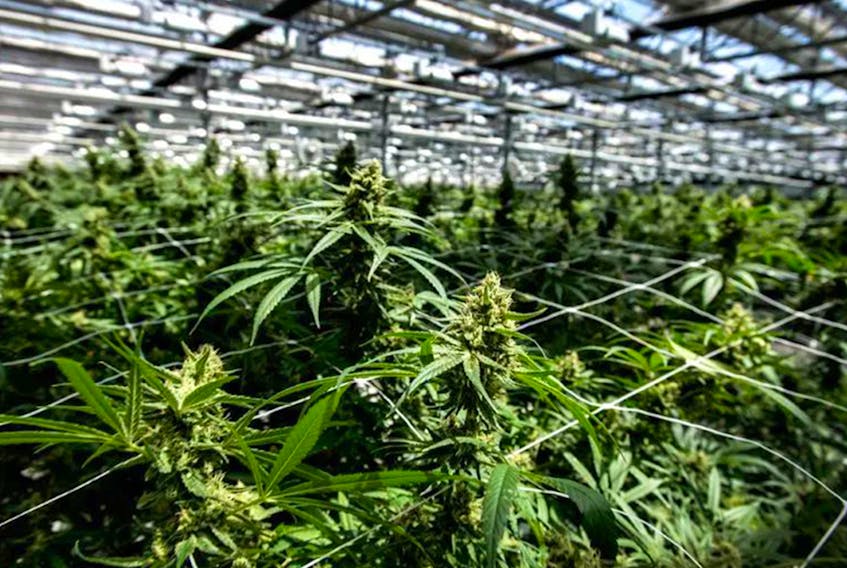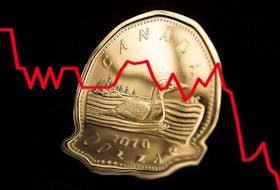CannTrust’s stock took another major hit on Monday after the embattled cannabis producer disclosed it had received a second non-compliance rating from Health Canada, this time in connection to its facility in Vaughan, Ont.
The violations at the 60,000-square-foot manufacturing facility included converting five rooms into storage areas that were used to hold cannabis beginning in June 2018 and the construction of two new areas, one of which was used to store cannabis from November 2018 onwards, all without approval from Health Canada.
The company’s shares plunged more than 27 per cent to close at $3.04 in Toronto, erasing much of a surprise gain they had posted on Friday. They remain well below the $6.46 mark at which they were trading six weeks ago, when the company first acknowledged it was being investigated for growing cannabis in unlicensed rooms in its Pelham, Ont., facility.
Health Canada conducted an inspection of the Vaughan facility between July 10 to July 16, which led to the most recent non-compliance order.
Since legalization, Health Canada had only conducted one other in-person inspection of that facility, on April 16, 2019, according to department spokesperson Tammy Jarbeau.
CannTrust’s Vaughan facility used to be an indoor cultivation site, but in late 2018 the company shifted all its cultivation operations to Pelham and designated Vaughan as its manufacturing site, where harvested cannabis would be stored, ready for shipment.
CannTrust’s extraction capabilities — which the company was planning to employ in the lead-up to the legalization of edibles and concentrates — also reside at the Vaughan site.
“A big takeaway from today’s announcement is that the company is now without its manufacturing facility, which will limit its near-term ability to resume sales,” said Jesse Pytlak, an analyst at Cormark Securities. “Now that you have that facility offline, it creates a bottleneck in the business.”
A statement put out by the company Monday morning added that Health Canada’s inspection of the facility also found “insufficient security controls, inadequate quality assurance investigations and controls” and “documents or information that were not retained in a manner to enable Health Canada to complete its audit in a timely manner.”
In early July, Health Canada seized 5,200 kilograms of cannabis from CannTrust’s Pelham facility, after the licensed producer was caught growing cannabis in five unlicensed rooms. An additional 7,500 kilograms of cannabis stored in Vaughan had been put on a voluntary hold by the company. In mid-July, CannTrust halted the sales of all of its products across the country and internationally.
In Monday’s statement, CannTrust said it would provide “further details of the hold and other developments as they become available.” An earlier statement by the company said that the value of the “impacted inventory and biological assets” was approximately $51 million as of June 30, 2019.
Jarbeau confirmed that to date, no product seized or placed in voluntary hold by CannTrust had been destroyed, but that “Health Canada will not hesitate to take additional action if warranted to protect public health and safety.”
CannTrust’s interim CEO, Robert Marcovitch, said in a statement that the company was already moving to address Health Canada’s concerns.
“We have retained independent consultants who have already started addressing some of the deficiencies noted in Health Canada’s report,” Marcovitch said. “We are looking at the root causes of these issues and will take whatever remedial steps are necessary to bring the Company into full regulatory compliance as quickly as possible.”
CannTrust — which once had a market capitalization of more than a billion dollars — has lost roughly 60 per cent of its value since the unlicensed growing activities first came to light. The scandal has spawned numerous class-action lawsuits and an investigation by the Ontario Securities Commission.
In late July, the company fired former CEO Peter Aceto and forced founder and former chairman Eric Paul to resign; A special committee investigation into what exactly led to the unlicensed activities is still ongoing.
“It does not feel like Health Canada is going to let up or take it easy on them,” said Greg Taylor, chief investment officer and portfolio manager at Purpose Investments. “If you’re an interested buyer of these assets, you’re going to want Health Canada to sign off on the fact that CannTrust is not going to lose its licence. I’m not sure when Health Canada will be in a position to do that,” Taylor said.
The company has said that although it has already been preparing a “remediation plan” for submission to Health Canada, the regulator has not been able to provide CannTrust with guidance about the “timing and content” of its decision regarding the non-compliance orders.
At one point, 10 per cent of the marijuana fund run by Taylor — Purpose Marijuana Opportunities Fund — was allocated to CannTrust stock. Taylor said he exited the fund’s position in CannTrust almost entirely after former president Brad Rogers and head of production Michael Ravensdale left the company last fall.
“It used to be one of the better-run cannabis companies until there were major changes at the management level,” Taylor said.
CannTrust confirmed recently that it had retained Greenhill & Co as its financial advisor, as it considers a potential sale of assets — that was prior to auditing firm KPMG LLP announcing that it would withdraw its reports on CannTrust’s year-end and first-quarter results.
“There are two ways this can play out — either someone swoops in and does a clean asset purchase, or the company goes into bankruptcy protection and a similar process plays out,” said a Toronto-based investment banker, who declined to be named.
“Either way it is not going to be a conventional M&A process because you have massive litigation risk. What’s likely is someone’s going to wait until the company bleeds out further, before coming in to see what’s left.”
• Email: [email protected] | Twitter: VanmalaS
Copyright Postmedia Network Inc., 2019









